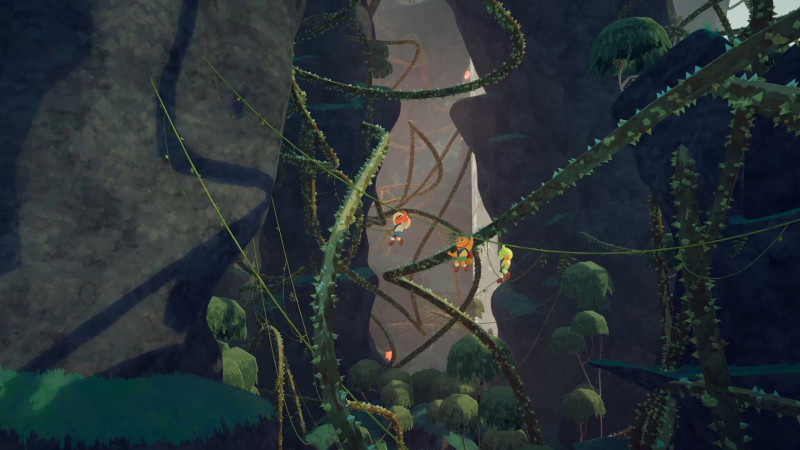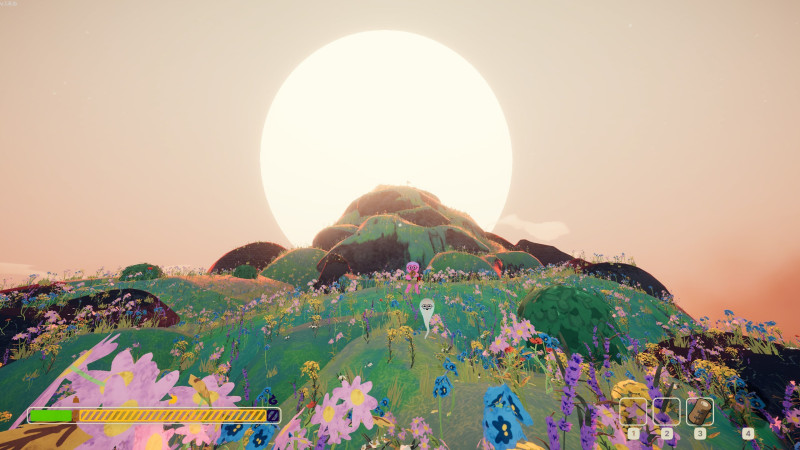Peak is one of the latest viral editions of a multi -person couple and is fantastic. The idea is elementary: climb to the top of the mountain generated procedural, overcoming environmental challenges by means of teamwork (up to four players), management of durability and all equipment that is wiped out. The Landcrab developer, a cooperation team consisting of members from two experienced game studies, provides an extremely clever adventure full of curiosity, danger and laughter.
After a breakdown to the island, players must remove what they do not have much from the luggage of airlines scattered over four peak biomes. While the game engine generates a novel top every day, the order of its environment remains the same: it will rise from a rocky shore, avoid poisonous fauna in the tropics, and then survive the frozen alpine winds and avoid fire storms. The final hill lies in the oven, the monolithic interior of the volcano with a diminutive number of handles and a threatening melted rock, which mocked anyone who was trying to escape from the vent.
Players must manage a variable strength rod that grows and shrinks on the basis of consumables, damage to falls and status effects. Hunger, naturally occurring, requires eating food. Airlines are a unthreatening plant, and wild berries and mushrooms are gambling for under -informed explorers. After eating poisonous food, you need to drink an antidote or medicine. Items such as an energy drink or lollipop significantly improve climbing abilities, but a sugar accident can force you to fall asleep and slide off the cliff. Other devices, such as chain launchers, pitons or rope spools, can create life -saving shortcuts when you have no strength to climb the next shelf. Regardless of the reasons, if Stamina reaches zero, you fall into the unconscious, and your friends must save you or revive you in the temple at the top of the mountain.
Discovering the properties of objects and learning to apply them in favor is an extremely satisfying (and often fun) experience. However, the loss of an object (or player) to a infrequent technical fault, such as pruning the level, is frustrating in times of high dependence of objects.

The stylized artistic direction and Shaders Toon cultivate the encouraging atmosphere, mature to physical pieces of comedy. At the same time, weather systems, such as rain, fog, geysers and wind storms, additionally affect the path and decision making by the party. While climbing the tropics, hefty fog goes upstairs, when poisonous vines with greater than life sniff through the landscape, derailing the best developed plans. Alpine is usually home to simpler climbing, but its chilly winds cause frostbite to players stuck in a storm. Fortunately, items such as heat packages and a portable stove can stop bitter frigid if you can’t seek shelter in a nearby cave or gorge.
I partially assign Peak to the humor virus that its various systems facilitate. Seeing a friend probably counting the deadly jump is always hilarious, especially when their screams slowly disappear thanks to the chat of closeness. While my teammates fed by my teammates are sometimes frustrating, my fears disappear when I see my avenger to blow the aggressor quietly, causing them to fall asleep in the middle of watering. Taking care of vigorous competition, I also began to compete in climbing races to see who could first reach Mountain Ridge. Regardless of whether we take the challenge seriously, Peak sandbox is always fun.

Peak stands out as a delight in the year of earnest publishing houses of the main games, and I especially recommend it to anyone who is looking for a left among life stress. Climbing to the top can be treacherous, but overcoming many threats with my friends is one of my favorite memories of playing this year.

